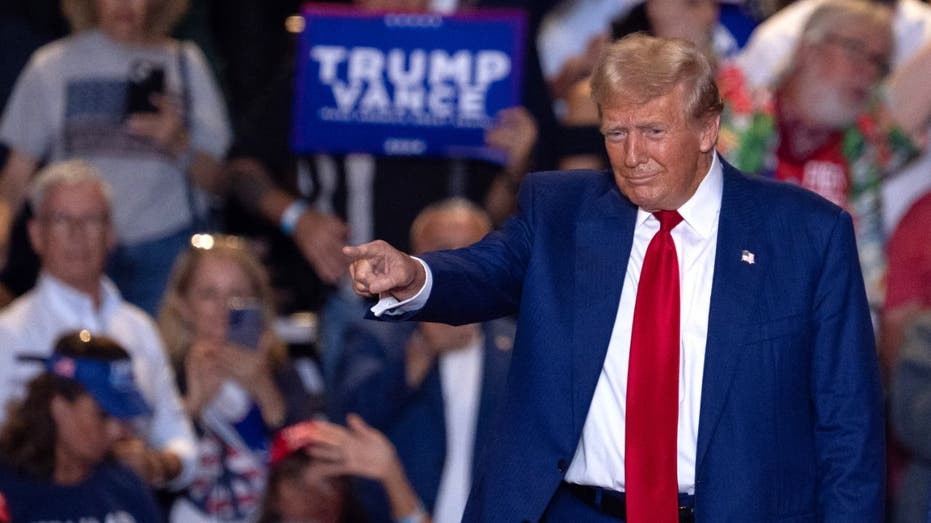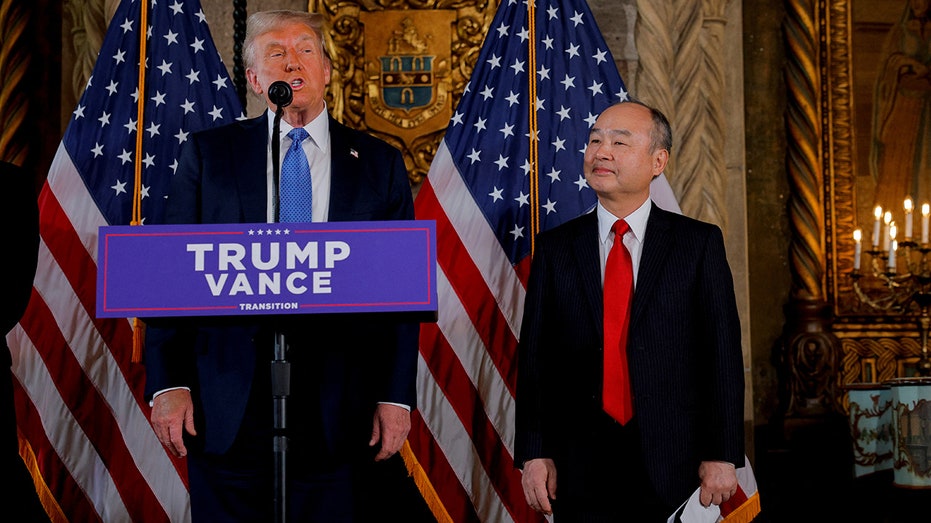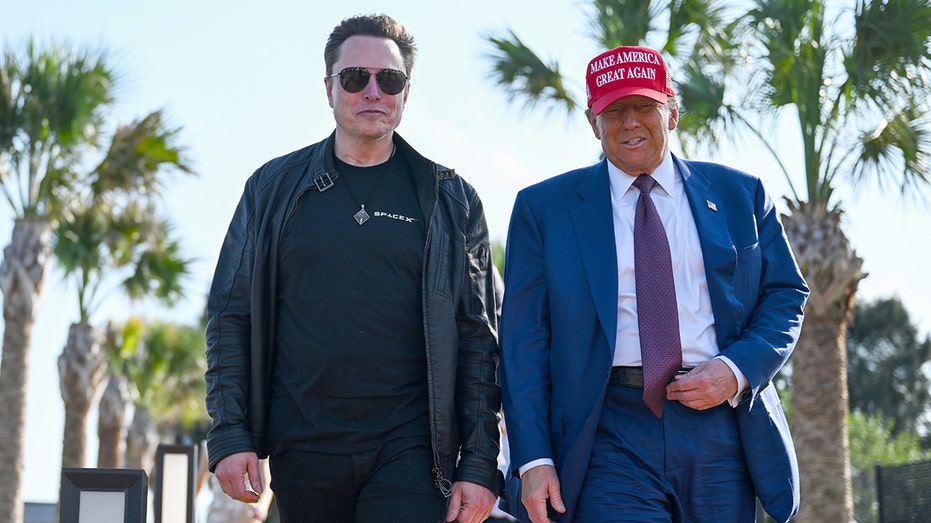CEO optimism rises following Trump's election win
Nearly 4 in 5 global CEOs surveyed said they expect the global economy to improve in the first half of 2025
Trumps early policy talk is a good feature, but it could be a buck, David Bahnsen argues
Bahnsen Group founder and managing partner David Bahnsen reacts to the economic commentary President-elect Trump made from Palm Beach, Florida, with reporters on Monday.
President-elect Trump's electoral victory has led to a surge in confidence about the state of the global economy, according to a new survey that gauged the sentiment of CEOs in the wake of the election.
The survey, which was conducted by Teneo during the three-week period after the election, included the views of over 300 global public company CEOs and 380 institutional investors representing about $10 trillion of company and portfolio value. It was first reported by the Wall Street Journal.
It found that 77% of global CEOs expect that the global economy will improve in the first half of 2025 — up from 45% last year, a 32 percentage point increase. That sentiment was shared by 86% of investors.
"For the first time since Teneo has conducted this survey, we see significant alignment between CEOs and investors on the direction of the global economy, and confidence has never been higher," said Teneo CEO Paul Keary.
TRUMP'S PROPOSED TARIFFS: WHAT CONSUMER PRODUCTS COULD BE IMPACTED?

President-elect Trump's upcoming return to the White House has CEOs and investors optimistic about 2025. (DAVID DEE DELGADO/AFP via Getty Images / Getty Images)
"Buoyed by the 'Trump Effect,' the market expects a resurgence of M&A, increased hiring and greater levels of U.S. and foreign investment. The U.S. will clearly be the beneficiary of much of this positive activity, solidifying its position as the most important investment destination for global businesses," Keary added.
More than 80% of CEOs and investors expect that the market for mergers and acquisitions will experience a major return in 2025, up from 68% last year.
TRUMP, SOFTBANK CEO ANNOUNCE $100B INVESTMENT TO CREATE 100,000 AMERICAN JOBS
This comes after the Biden-Harris administration heavily scrutinized proposed mergers and mounted successful legal challenges to mergers like the Albertsons and Kroger deal that was blocked last week.
Half of global CEOs said they're accelerating their activities in areas like domestic and international investments as a result of the 2024 election. The U.S. ranked as the most attractive investment destination among global CEOs.

U.S. President-elect Donald Trump delivers remarks next to Chairman and CEO of SoftBank Masayoshi Son, at Mar-a-Lago in Palm Beach, Fla., on Monday, Dec. 16. (Reuters/Brian Snyder / Reuters)
Nearly two-thirds of survey respondents, 64%, said they believe that policy changes related to tariffs, as well as tax and regulatory relief, will have a positive impact on their businesses in 2025.
There was a disparity among CEOs of large-cap and mid-cap companies about the impact of tariffs. While 80% of mid-cap CEOs said they believe higher tariffs on imports to the U.S. will have a positive impact, just 13% of large-cap CEOs agreed.
Over three quarters of CEOs, 76%, said that the outcome of the election will improve the global economy and global stability, while 83% of investors took that view. CEOs and investors both expressed confidence that businesses are positioned to address a range of potentially disruptive geopolitical issues, such as conflicts in the Middle East and Russia's war against Ukraine.

South Florida real estate tycoons make the case that DOGE co-chair Elon Musk could be mulling over a move to the Sunshine State. (Brandon Bell/Getty Images / Getty Images)
The share of CEOs who said that China plays a critical role in their corporate strategy has more than doubled over the last two years from 20% in 2023 to 47% in 2025. About one-third of CEOs and investors, 32% and 31%, respectively, said that policy disruptions related to China would have the biggest negative impact on their businesses.
Environmental, social and governance (ESG) policies are also undergoing fresh scrutiny with 91% of CEOs saying they're recalibrating ESG initiatives due to the politicization of those policies — up from 72% last year.
Of that group, 40% are being more selective about the issues or topics they engage in, while 1 in 4 are scaling back ESG programs. Despite those concerns, 56% of global CEOs said they remain committed to balancing ESG priorities with their core business objectives.
GET FOX BUSINESS ON THE GO BY CLICKING HERE
The survey also found that investors and CEOs are viewing artificial intelligence (AI) investments differently. Nearly 80% of investors expect AI projects to generate a positive return on investment within the first year, while 41% CEOs of large-cap companies are willing to let AI initiatives mature over the course of one to two years before they expect positive results.




















